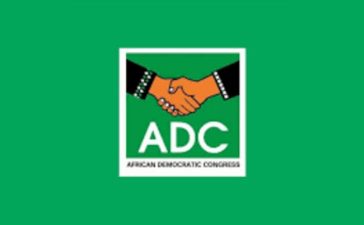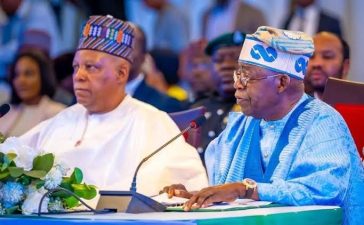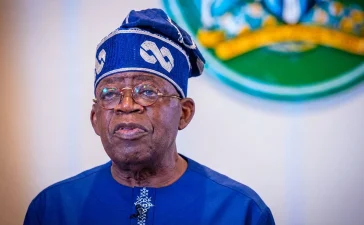Fresh allegations trail Former Kogi State Governor Yahaya Bello as the Economic and Financial Crimes Commission (EFCC) makes startling revelations of his financial misconduct. According to the EFCC, Bello withdrew a substantial sum of $720,000 from state funds to prepay his child’s school fees before concluding his tenure on January 27, 2024.
In a conversation with journalists at the EFCC headquarters in Abuja’s Jabi area, EFCC chief Ola Olukoyede condemned Bello’s actions, describing them as a blatant misuse of public resources. Olukoyede emphasized the severity of the situation, highlighting the unjustifiable nature of such expenditures in a state like Kogi, known for its economic challenges.
He said, “A sitting governor, because he knew he was leaving office, moved money directly from the government to Bureau de Change (and) used it to pay his child’s school fee in advance.
“Over $720,000 or thereabout, in anticipation that he was going to leave the Government House. In a poor state like Kogi? And you want me to close my eyes under the guise of ‘I’m being used’. Used by who? At this stage of my life? Used by who?
“I didn’t initiate the case; I inherit the case, I called for the case file and I said there are issues here.”
Expressing his commitment to ensuring accountability, Olukoyede vowed to pursue Bello’s prosecution vigorously. He underscored the importance of upholding the rule of law and emphasized that no individual, regardless of their status, should be above accountability.
The EFCC’s pursuit of Bello extends beyond the allegations of misappropriation of funds. The commission seeks to arraign him on 19 counts related to money laundering, breach of trust, and financial misconduct, amounting to a staggering N80.2 billion.
Despite the mounting pressure, Bello’s whereabouts remain uncertain. Efforts by the EFCC to apprehend him have been thwarted, with his successor, Usman Ododo, allegedly intervening to prevent his arrest.
The EFCC’s declaration of Bello as a wanted individual underscores the gravity of the situation. The agency, backed by the Attorney General of the Federation and Minister of Justice, Lateef Fagbemi, has made it clear that obstruction of its operations will not be tolerated.
Meanwhile, in what can be described as a legal twist, the EFCC has taken a decisive step in its pursuit of former Governor Yahaya Bello, serving his lawyer, Abdulwahab Mohamed, with a copy of the charge sheet alleging fraud amounting to N80 billion. This development follows Bello’s notable absence in court for his arraignment on a 19-count charge of alleged money laundering.
Justice Emeka Nwite of the Federal High Court in Abuja invoked sections 384(4 and 5) of the Administrative and Criminal Justice Act 2015 to authorize the substituted service of the charge sheet. This decision came as a response to Bello’s failure to appear in court as required.
Bello’s lawyer, Mohammed, initially resisted accepting the charges and evidence, but was ultimately compelled to do so by Justice Nwite. The judge firmly rejected any attempt to delegate this responsibility to a junior lawyer within Bello’s legal team.
Amidst these legal maneuvers, Adedayo Adedipe, representing Bello, expressed his client’s readiness to face the charges but cited concerns over the fairness of the judicial process. Adedipe asserted that Bello was prepared to present himself before the court, emphasizing his commitment to addressing the allegations leveled against him.
Additionally, Adedipe urged the court to reconsider the ex-parte order of arrest issued against Bello, arguing that it was premature given that the charge had not been formally served at the time of its issuance.
This latest development underscores the intensifying legal battle between Bello and the EFCC, with both sides positioning themselves for a protracted courtroom confrontation. As the legal proceedings unfold, the stakes continue to rise, and the outcome remains uncertain.
Bello had argued that the EFCC was an illegal organisation. According to him, the Federal Government did not consult the 36 states of the federation before enacting the EFCC Act through the National Assembly. He added that section 12 of the 1999 Constitution as amended, required the various Houses of Assembly to ratify the act before it could become operative.
Counsel to the EFCC, Kemi Phinheiro, however, urged the court to dismiss the application, insisting that the warrant of arrest should not be set aside until the defendant makes himself available for trial.
He argued that Bello did not have the legal ground to file numerous applications while in hiding.
Justice Nwite had last week issued a bench warrant against Bello following an application to that effect by EFCC.
The EFCC subsequently declared the former governor wanted for his persistent absence in court and for evading the criminal charges against him.







